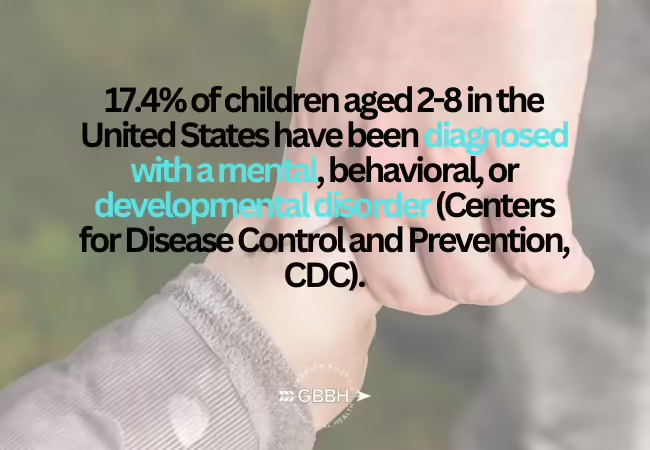Emotional regulation is a cornerstone of mental well-being, especially for children and families navigating daily challenges. While emotions are natural, understanding and managing them effectively can lead to healthier relationships and improved behavioral health outcomes. For families in Boston seeking guidance on emotional regulation, behavioral health in Boston services, including DBT Therapy and CBT Therapy, offer valuable tools. Let’s explore the dos and don’ts of emotional regulation while shedding light on resources to support your journey.
The Dos: Fostering Healthy Emotional Regulation
Encouraging children and family members to embrace emotions in a safe and constructive way begins with open communication. Creating an environment where feelings are acknowledged without judgment is critical.
Another effective approach involves teaching practical coping strategies. Techniques like deep breathing, mindfulness, or grounding exercises can help children regulate intense emotions. Families in Boston can benefit from resources like Boston behavioral health programs that integrate evidence-based therapies into everyday life. Tools learned through CBT Therapy and DBT Therapy empower children to manage stress, anxiety, or anger constructively, leading to long-term emotional resilience.
Modeling emotional regulation is also essential. Children often learn by observing adults. Demonstrating how to remain calm in challenging situations can teach valuable lessons. For instance, parents might narrate their emotional process by saying, “I’m feeling upset, so I’ll take a few deep breaths before responding.” Such practices encourage children to adopt similar strategies.
The Don’ts: Avoiding Common Emotional Regulation Pitfalls
While promoting emotional regulation, it’s important to steer clear of practices that can hinder growth. One common mistake is suppressing or ignoring emotions. Telling children to “stop crying” or “get over it” may discourage them from expressing their feelings, potentially leading to unresolved emotional issues. Instead, focus on validating their experiences and guiding them toward healthy coping mechanisms.
Overreacting to a child’s emotional outburst is another pitfall to avoid. Instead, remain calm and offer support. For families facing persistent emotional challenges, engaging with a Mental Health Treatment Center in Boston can provide structured support to address underlying issues.
Lastly, avoid setting unrealistic expectations for emotional control. While it’s essential to teach emotional regulation, expecting perfection is unrealistic and counterproductive.
A Holistic Approach to Emotional Well-Being
Beyond traditional therapy, integrating holistic practices into family routines can significantly improve emotional regulation. Activities such as yoga, creative arts, or spending time in nature can create calming moments and reduce stress. These activities complement therapies provided by a Mental Health Treatment Center in Boston, fostering a well-rounded approach to emotional health.
Furthermore, establishing consistent routines can help children feel secure, laying the groundwork for better emotional management. Predictable schedules for meals, playtime, and bedtime provide a sense of stability, especially for younger children. Families in Boston can explore mental health treatment programs to gain insights into creating such structures at home.
The journey toward better emotional regulation is an evolving process, requiring patience, practice, and sometimes, professional intervention. For those in Boston, accessing services that blend evidence-based practices with empathetic care can make all the difference. River Rocks Recovery embodies this philosophy, guiding families toward a future of resilience and emotional well-being.
The Dos of Emotional Regulation
1. Do Model Healthy Emotional Behavior
Children are like sponges—they learn how to regulate emotions by watching the adults around them. Modeling calm and constructive emotional responses teaches them how to handle their own emotions.
- Stay Calm in Stressful Situations: If you’re frustrated, demonstrate techniques like deep breathing or counting to ten.
- Verbalize Your Emotions: Say things like, “I feel upset because of this situation, but I’m going to take a moment to think before I respond.”
- Apologize When Necessary: Showing accountability helps children understand that it’s okay to make mistakes and repair relationships.
2. Do Teach Emotional Vocabulary
Helping children name their feelings is one of the first steps in emotional regulation. When kids can label emotions, they’re better equipped to manage them.
- Use Emotion Charts: Visual aids can help younger children recognize and label their feelings.
- Discuss Emotions During Storytime: Talk about how characters in books or movies feel and why.
- Encourage Emotional Expression: Ask open-ended questions like, “How does that make you feel?” or “What can we do to make it better?”
3. Do Practice Mindfulness and Relaxation
Mindfulness helps children become aware of their emotions and respond thoughtfully rather than impulsively. Relaxation techniques are effective for managing emotional intensity.
- Teach Deep Breathing: Simple exercises like “smell the flower, blow out the candle” can calm children during emotional moments.
- Introduce Guided Meditation: Use kid-friendly meditation apps or videos to help them relax and focus.
- Promote Journaling or Drawing: Encourage kids to express their emotions through writing or art.
4. Do Create Opportunities for Problem-Solving
Helping children develop problem-solving skills empowers them to address challenges rather than reacting emotionally.
- Role-Play Scenarios: Practice situations like handling conflicts with friends or coping with disappointment.
- Encourage Critical Thinking: Ask questions like, “What do you think we can do to solve this problem together?”
- Celebrate Small Wins: Recognize and praise their efforts in managing emotions or resolving conflicts constructively.
5. Do Seek Professional Support When Needed
Sometimes, children and families need additional help to navigate emotional challenges. Programs like DBT Therapy, CBT Therapy, and other Mental Health Treatment Programs offer targeted support.
- DBT Therapy: Teaches emotional regulation skills, distress tolerance, and interpersonal effectiveness, particularly for intense emotional swings.
- CBT Therapy: Helps children reframe negative thought patterns and develop healthier coping mechanisms.
- Mental Health Treatment Programs: Provide comprehensive care for co-occurring conditions like anxiety or trauma that may affect emotional regulation.
The Don’ts of Emotional Regulation
1. Don’t Minimize or Dismiss Emotions
Statements like “Stop crying” or “It’s not a big deal” can invalidate a child’s feelings and discourage them from expressing themselves.
- Acknowledge Their Feelings: Say, “I see that you’re upset, and that’s okay. Let’s talk about it.”
- Avoid Comparisons: Don’t compare their reactions to those of others; every child processes emotions differently.
2. Don’t Overreact to Their Emotions
Reacting with anger or frustration to a child’s emotional outburst can escalate the situation and teach them to mirror those behaviors.
- Stay Composed: Respond calmly, even if their behavior feels overwhelming.
- Redirect Behavior: Guide them toward healthier outlets, like taking a break or discussing their feelings once they’ve calmed down.
3. Don’t Punish Emotional Expression
Disciplining children for expressing emotions can make them feel ashamed of their feelings and discourage open communication.
- Focus on Actions, Not Feelings: Address any inappropriate behavior without criticizing their emotions.
- Offer Alternatives: Teach them constructive ways to express anger or frustration, like using words or drawing.
4. Don’t Ignore Warning Signs
Persistent emotional outbursts, withdrawal, or mood swings may signal deeper mental health challenges that need attention.
- Look for Behavioral Changes: Watch for signs like difficulty sleeping, changes in appetite, or social withdrawal.
- Seek Help Early: If concerns persist, consult a Mental Health Treatment Center in Boston for evaluation and support.
How Professional Support Can Help
When children or families struggle with emotional regulation, professional interventions can provide tools and strategies tailored to their needs. Comprehensive programs address underlying issues and build lasting skills.
1. DBT Therapy
- Focuses on emotional regulation, mindfulness, and coping skills for managing intense emotions.
- Helps children and families build stronger relationships through improved communication and emotional understanding.
2. CBT Therapy
- Teaches children to identify negative thought patterns that fuel emotional outbursts.
- Provides practical strategies for handling stress, frustration, and anxiety effectively.
3. Mental Health Treatment Programs
- Address co-occurring conditions like anxiety, depression, or trauma that may contribute to emotional dysregulation.
- Include family therapy sessions to improve communication and foster a supportive home environment.
The Role of Families in Emotional Regulation
Families play a central role in helping children develop emotional regulation skills. By creating a safe, nurturing environment and modeling healthy behaviors, parents and caregivers lay the groundwork for resilience and emotional well-being.
1. Foster Open Communication
- Encourage children to share their feelings without fear of judgment.
- Regularly check in with each family member to ensure everyone feels heard and supported.
2. Create a Consistent Routine
- Predictable schedules provide stability and reduce emotional stress.
- Include time for relaxation, play, and family bonding.
3. Practice Collaborative Problem-Solving
- Involve children in decision-making processes to build their confidence and critical thinking skills.
- Work together as a family to address challenges and find solutions.
How Greater Boston Behavioral Health Can Help
At Greater Boston Behavioral Health, we specialize in helping kids and families develop emotional regulation skills through evidence-based therapies and holistic support. Our programs are tailored to meet the unique needs of each family, fostering resilience, communication, and emotional well-being.
Our Services Include:
- DBT Therapy and CBT Therapy for children and adolescents.
- Family Therapy Programs to strengthen connections and improve communication.
- Mental Health Treatment Programs designed to address emotional challenges and co-occurring conditions.
- Access to a compassionate team of professionals in a supportive, family-focused environment.
Finding Support for Your Family
In conclusion, emotional regulation is a vital skill that benefits children and families alike. By embracing the dos and avoiding the don’ts, families can create an environment where emotions are understood and managed effectively. For those seeking additional support, Boston offers a wealth of resources, including Boston behavioral health programs and services like River Rocks Recovery.
With compassionate care, holistic approaches, and evidence-based therapies like DBT Therapy and CBT Therapy, they offer a lifeline to those navigating emotional challenges. Through their empathetic and empowering community, families can rediscover their strengths and build a solid foundation for mental and emotional health along the therapeutic path of the river.
Final Thoughts
Emotional regulation is a skill that takes time, patience, and practice. By following these dos and don’ts, families can create an environment where children feel empowered to understand and manage their emotions effectively. With the right strategies and professional support, emotional regulation can become a foundation for healthier relationships and lifelong mental well-being.
If your family needs help with emotional regulation, Greater Boston Behavioral Health is here to support you. Contact us today at (888)278-0716 to learn more about our programs and take the first step toward a more harmonious and emotionally balanced future.
FAQs on Dos and Don’ts of Emotional Regulation
Why is emotional regulation important for kids?
Learning emotional regulation helps children build resilience, manage stress, improve relationships, and perform better academically and socially.
What are some strategies to teach emotional regulation to kids?
- Model calm behavior and verbalize your emotions.
- Teach mindfulness techniques like deep breathing or guided meditation.
- Use emotion charts or journaling to help children express their feelings.
What should parents avoid when teaching emotional regulation?
- Avoid dismissing or minimizing a child’s emotions.
- Don’t overreact to emotional outbursts; stay calm and composed.
- Refrain from punishing emotional expression—focus on addressing behavior instead.
How can professional support help with emotional regulation?
Professional therapies like DBT Therapy and CBT Therapy provide children with tools to manage emotions, handle stress, and build healthier coping mechanisms.
What are the benefits of DBT Therapy for kids?
DBT Therapy teaches emotional regulation, mindfulness, and interpersonal skills, helping children manage intense emotions and improve relationships.
How does CBT Therapy help with emotional regulation?
CBT Therapy focuses on identifying and changing negative thought patterns that contribute to emotional outbursts, promoting healthier coping strategies.


